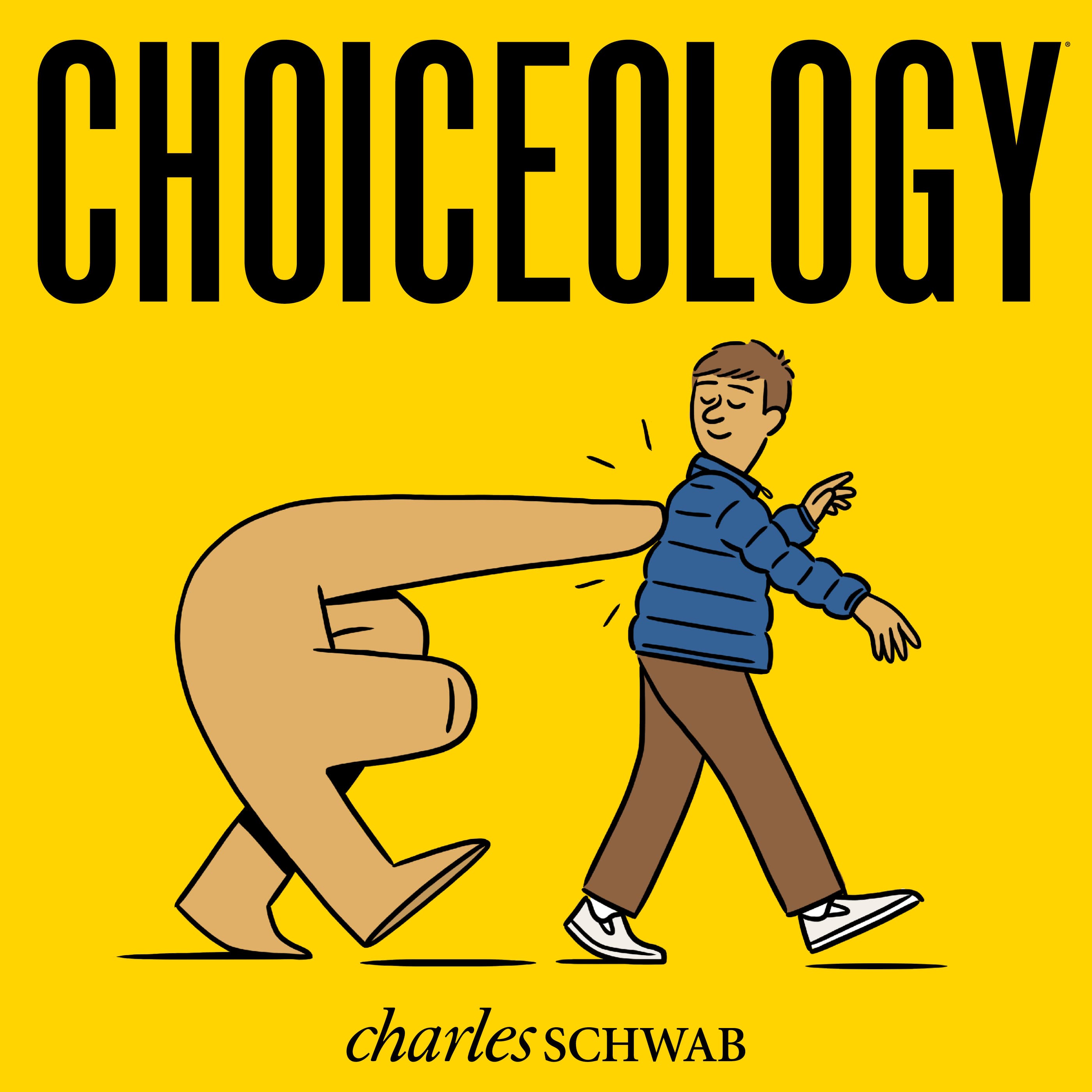Choiceology's Guide to Nudges
Nudges are all around you. They might help you choose your meal at a restaurant, navigate a busy airport terminal, or start saving for the future. But nudges are often subtle, so you might not notice them until they're pointed out.
In this episode of Choiceology with Katy Milkman, we're doing things a little differently. This episode is your guide to the many ways nudges have changed the world for the better.
We'll revisit examples of nudges you may recognize from previous episodes of Choiceology. UCLA professor Shlomo Benartzi explains why defaults help more people save for retirement. University of Chicago professor Ayelet Fishbach reminds us how making the best choice a fun one is a great way to encourage better decisions. Harvard professor Todd Rogers discusses how social norms can help people reduce water and energy usage in hotels.
You'll hear a feature interview with Nobel Prize-winning economist Richard Thaler, who along with Harvard law professor Cass Sunstein popularized nudges more than a decade ago in their book Nudge: Improving Decisions About Health, Wealth, and Happiness. And Cass Sunstein himself talks about how simplifying application forms can have an outsized impact on financial aid programs for students.
Richard Thaler is the Charles R. Walgreen Distinguished Service Professor of Behavioral Science and Economics at the University of Chicago's Booth School of Business. He is the author of several books, including Nudge: The Final Edition and Misbehaving: The Making Of Behavioral Economics.
Next, you'll hear from cognitive scientist Maya Shankar about how reading Nudge led her to work in the White House. She served as a senior advisor in the federal government where she founded the White House Social and Behavioral Sciences Team. She's also the creator, host, and executive producer of the award-winning podcast A Slight Change of Plans.
Finally, Katy discusses ways you can incorporate nudges in your own life to help you make better decisions.
Choiceology is an original podcast from Charles Schwab.
If you enjoy the show, please leave a rating or review on Apple Podcasts.
Learn more about behavioral finance.
Explore more topics
All expressions of opinion are subject to change without notice in reaction to shifting market conditions.
The comments, views, and opinions expressed in the presentation are those of the speakers and do not necessarily represent the views of Charles Schwab.
Data contained herein from third-party providers is obtained from what are considered reliable sources. However, its accuracy, completeness or reliability cannot be guaranteed.
Examples provided are for illustrative purposes only and not intended to be reflective of results you can expect to achieve.
All corporate names and market data shown above are for illustrative purposes only and are not a recommendation, offer to sell, or a solicitation of an offer to buy any security.
The policy analysis provided by the Charles Schwab & Co., Inc., does not constitute and should not be interpreted as an endorsement of any political party.
Investing involves risk, including loss of principal.
The book How to Change: The Science of Getting from Where You Are to Where You Want to Be is not affiliated with, sponsored by, or endorsed by Charles Schwab & Co., Inc. (CS&Co.). Charles Schwab & Co., Inc. (CS&Co.) has not reviewed the book and makes no representations about its content.
Apple Podcasts and the Apple logo are trademarks of Apple Inc., registered in the U.S. and other countries.
Google Podcasts and the Google Podcasts logo are trademarks of Google LLC.
Spotify and the Spotify logo are registered trademarks of Spotify AB.



